It’s time again for one of my favorite salutes — E&P’s 25 Under 35. In some way, it showcases our future — one that’s inspired, passionate and innovative — reinvigorated by fresh ideas and talent. There were so many deserving nominees this year that we stretched our 25 to include two more.
We thank the supervisors and colleagues who thoughtfully nominated this year’s nominees. I am sure you'll find their perspectives inspiring and give you renewed hope for the future of news media. Cheers to E&P’s 2024 class of 25 Under 35!
(Alphabetical, by last name)
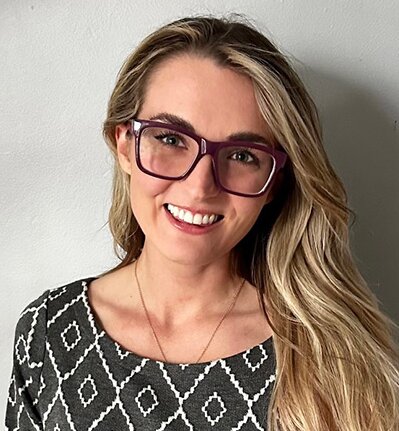
Erin Achenbach, 28
News Editor, St. Louis Call (Call Newspapers), St. Louis, Missouri
Education: Bachelor of Journalism, University of Missouri School of Journalism, with an emphasis in photojournalism, a minor in anthropology and a multicultural certificate
What advice do you have for other young professionals in news?
Starting a career in the news industry can be challenging but rewarding. My advice is simple: Your early career will be what you make of it, especially when you’re starting out. You’ll come across assignments or beats that might not seem important or are hard for you, but each one teaches you something. These experiences help you build skills, get a better view of the industry and learn how to handle a variety of situations. It’s important to make the most of your early career experiences in a field that’s constantly changing and moving fast. No matter how small, every job is a chance to learn and grow.
But remember, it’s also OK to check in with yourself. Being happy and satisfied in your job matters. Stay open to change, adaptable and focused on what's best for you — that will be reflected in your work. Keep your personal and professional goals in mind. The news industry can be demanding, so make sure your path is helping you grow personally and professionally. Ultimately, your early career is like a blank page. Fill it with experiences that help you grow, both in your job and life.
What is the key to connecting with your community?
Be present! This means more than just showing up at planning, city council and school board meetings. It’s also showing up for community events and town halls, making your face familiar to your readers. This visibility builds trust and rapport with readers and key figures in the community like elected officials, business leaders and other potential sources.
But it’s not just about being seen; it’s about active engagement. Listen to the concerns and stories of the people you meet. Each conversation is an opportunity to understand the community better. Go beyond what's on meeting agendas. These agendas can serve as hints to underlying issues or potential stories that might otherwise go unnoticed.
Lastly, remember that building connections is a two-way street. It’s not just about broadcasting information but also about receiving and responding to it. Encourage reader feedback, be open to criticism and always look for ways to improve how your outlet serves its community. By doing this, you become not just a reporter or editor but a vital part of the community you’re reporting on.

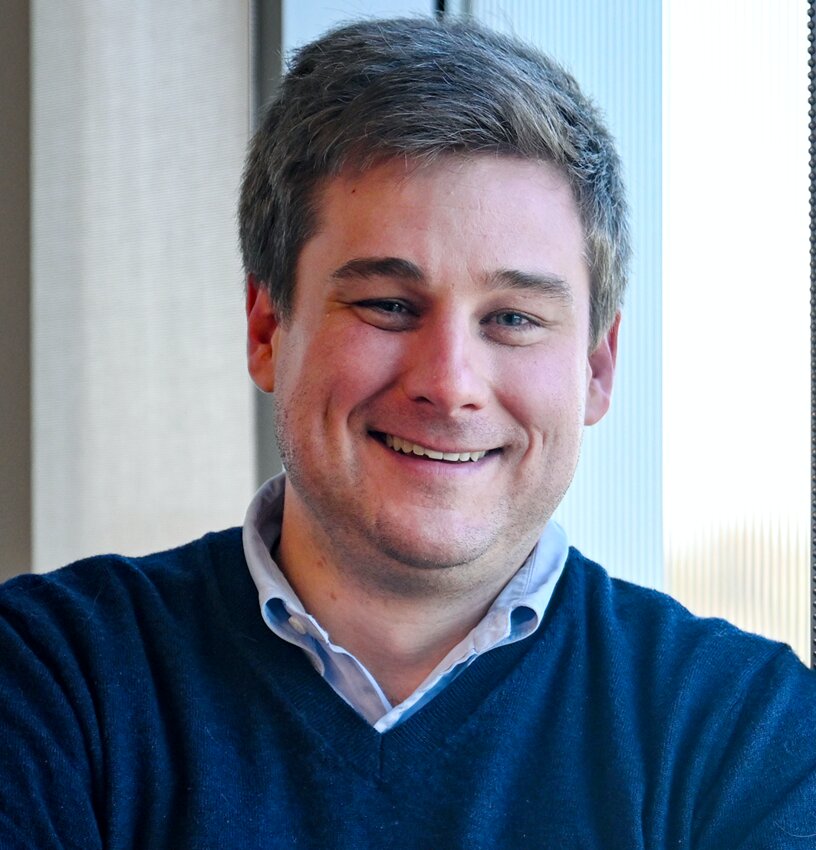
Matt Albright, 35
Metro Editor, The Advocate (Georges Media Group), Baton Rouge, Louisiana
Education: Bachelor of Arts in Political Communication, Louisiana State University
What advice do you have for other young professionals in news?
Don’t assume your journalism will find an audience. We occupy an increasingly crowded market for information, and your work needs to actively seize the attention of readers and viewers. From the start of the journalistic process, think: What about this story will make it compelling to my audience? How can I distill the information or ideas that make a story interesting into a headline and lede that will clearly and quickly convey why someone should care?
This doesn’t mean you have to sink to the lowest common denominator. Rigorous, meaningful journalism absolutely can and does resonate with audiences. In fact, it drives the deepest kinds of engagement when done right. However, it takes intentionality and effort to ensure that work is presented in a way that is approachable and compelling to a broad audience.
How do you see AI affecting journalism now and in the future? What guardrails do we need?
Used responsibly and with caution, AI may be useful to journalists early in the reporting process. For example, there is promise in new, AI-powered tools that help reporters monitor public meetings, comb through datasets and visualize information. But AI should be seen as augmentative, not creative. AI cannot do the fundamentally human work of identifying what information is important, making sure it is accurate and explaining it to audiences in a clear and compelling way.

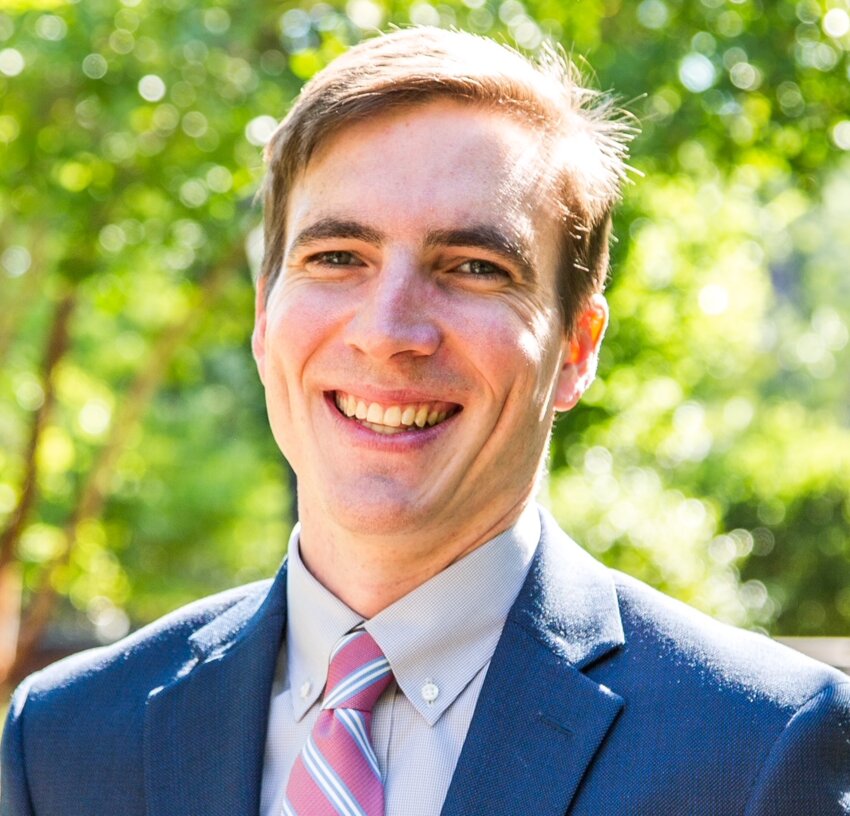
Carl Appen, 27
Director of Content and Development, Appen Media Group, Alpharetta, Georgia
Education: Bachelor of Arts in Letters, University of Oklahoma
What advice do you have for other young professionals in news?
Spend as much time as you can doing the work, and be wary of talking about the work. Don’t be afraid to ask for help, but know you’re more capable than you think. Be willing to take risks and make bets. At the same time, understand that some of your most essential assets in this industry are your reputation and the relationships you build over time. Build and guard them wisely. It all adds up.
What is the most critical thing this industry must achieve to continue to be sustainable and relevant?
Adapt our work to fit changing interests and attention.

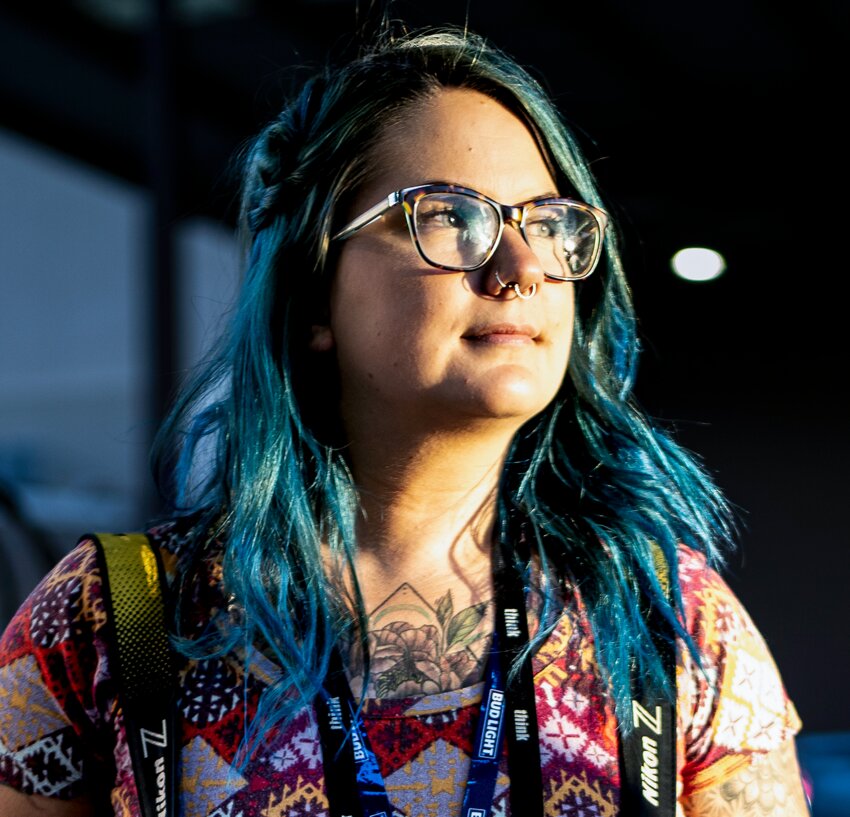
Chancey Bush, 35
Staff Photojournalist, Albuquerque Journal, Albuquerque, New Mexico
Education: Bachelor of Arts in Journalism with a minor in photography, Metropolitan State University of Denver
What advice do you have for other young professionals in news?
Trust your journey and follow your intuition. Believe in yourself, and do not take criticism personally. As the saying goes, expect the unexpected. Do your research. Researching an issue, person, topic, or event will give you a better understanding of what to look for to tell the story. Arrive early to assignments, and stay late. Some of my favorite moments I have captured happened before or after an event.
Always be prepared, because the news does not have a bedtime. Step outside your comfort zone. Asking questions and being curious have led me to many unique stories.
Network with fellow journalists. Having support in the journalism community and sharing knowledge, tips and experiences has helped me to grow and learn throughout my career.
Try not to put too much pressure on yourself. The industry is stressful enough. Embrace your eye. Our individuality is what makes photojournalism powerful. It is in how you see moments and capture the objective truth of the human experience.
Finally, self-care. Burnout is real in the news industry. Make time for yourself. Without your health, you cannot pursue your passion.
How can we, as an industry, better use visuals — photos and videos — to cover the local community?
Being a photojournalist, I’m always rooting for bigger photos in print and photo spreads. As many newspapers continue to shed pages in print, photographs take the brunt. Photographs draw the reader to the article and remain the universal language of storytelling. People can see an image and understand the humanity within it.
In the age of digital journalism and social media, the use of visuals is as vital as ever. The news industry’s online platforms have more space for content. With this gift of range, the industry can better use visuals to cover their local communities by taking advantage of striking photo designs, photo galleries and especially multimedia storytelling. Combining captivating photographs, video, audio and graphics provides a compelling tool to better engage and inform our readers. Multimedia provides visual and auditory layers that words by themselves cannot achieve.
Journalism will never die. The business models are evolving. Visuals play a primary role in news stories posted on social media because the picture tells the story. This engages younger generations to be informed in their communities and the world they are a part of.

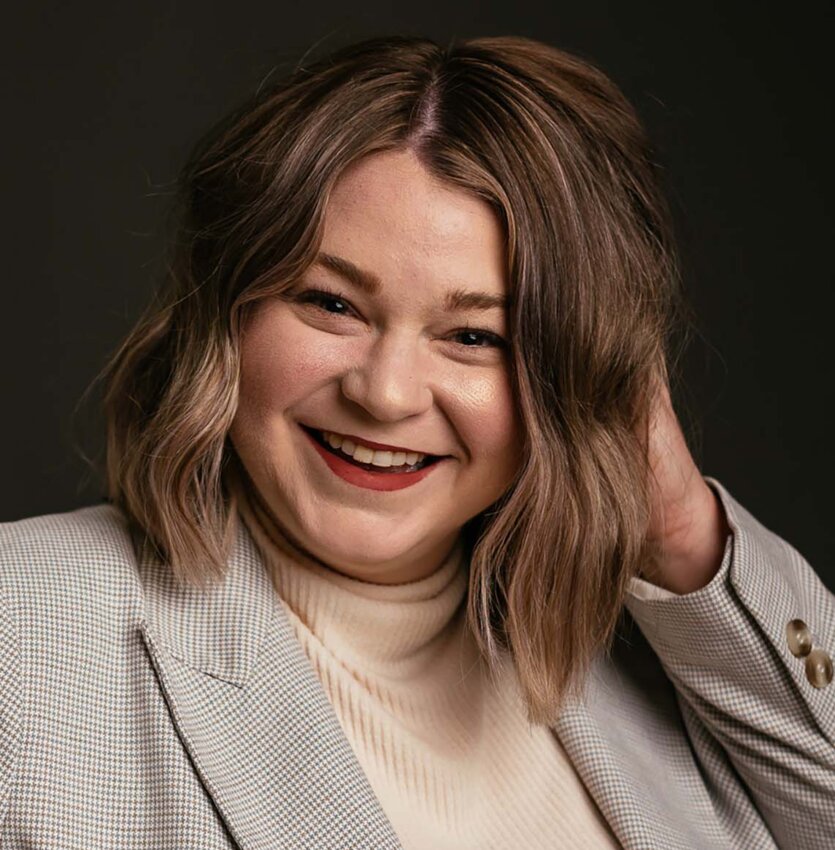
Lizzie Campbell, 32
Production Manager, Community Journals, Greenville, South Carolina
Education:
Currently pursuing a degree in marketing, Greenville Technical College
What advice do you have for other young professionals in news?
When it comes to being in production in this fast-paced, deadline-driven world, being organized is a critical key to success. My team would tell you that I have one rule that I have tried to instill in them since the first day here. Keep your emails clean and organized. The process goes as follows: receive the email, complete the task, reply to the sender to communicate what you did, make a folder to ensure you can find it easily, and then get that email out of your inbox and into the appropriate folder. It may seem simple, but it’s the best and most solid advice I could give anyone handling the number of client requests we do.
I also would encourage young professionals to be team players. When everyone in a department is willing to be a voice of encouragement and a helping hand and supports one another, it makes everyone’s job easier and more enjoyable.
Where do you see the future of print media heading?
In an era where digital seems to be king and sometimes overshadows traditional mediums, I feel that print media is still very much alive and well.
Just last week, I tried to follow instructions for a recipe on my phone, and ads and videos repeatedly kept popping up directly where I was trying to read. As my frustration grew, I thought I should keep using recipe books and magazines.
And so, even though that was a simple and trivial occurrence, I feel like while digital media certainly has earned its place at the table, millennials and even the younger generations will have similar experiences and ultimately come to the conclusion that there is nothing quite like holding a magazine, flipping through the pages and seeing ads where they should be, gracefully alongside the content.

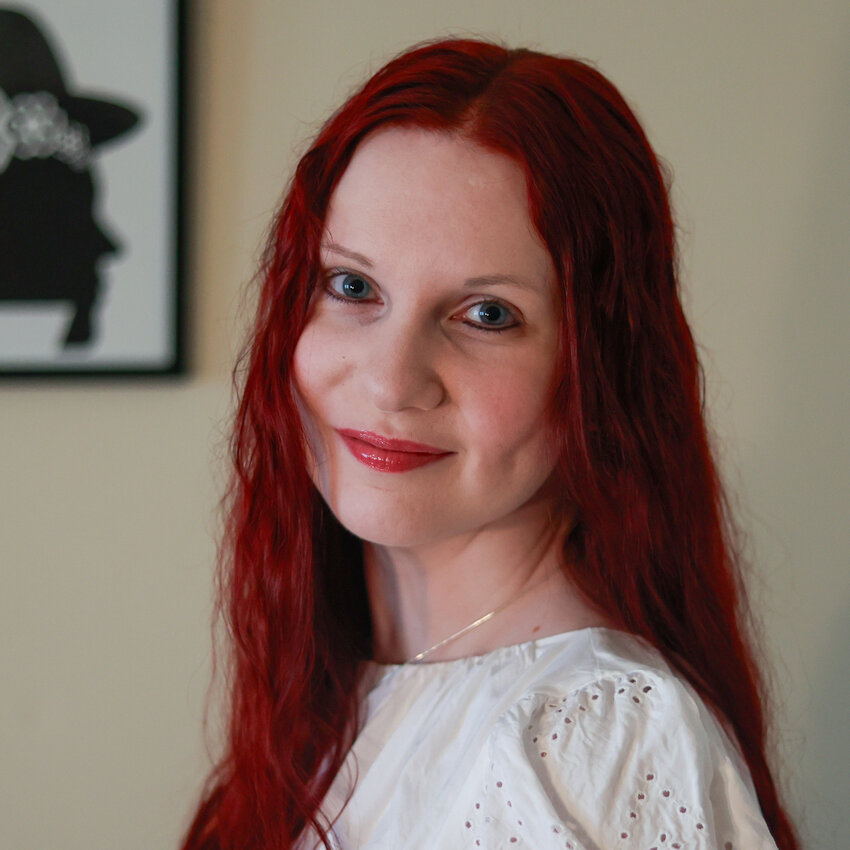
Mackenzie Clark, 32
Reporter/Founder, The Lawrence Times, Lawrence, Kansas
Education: Bachelor of Science in Journalism, University of Kansas
What advice do you have for other young professionals in news?
Trust your instincts. If something doesn’t feel right, it probably isn’t. Stoke your inner fire and help your curiosity thrive. Every word matters; choose intentionally and make them count. Find systems and tools that make your life easier.
Don’t be afraid to ask questions, and ask them often. That includes asking someone to explain something like you’re five years old when needed. It also includes asking for help and asking what you can do better.
Don’t settle for the explanation “That’s the way we’ve always done it,” if you know there’s a better way something can be done. Journalism needs to catch up and keep up with the times.
What is your approach to creating a sustainable business model for a local media company?
The Lawrence Times has been made possible entirely by support from our community. We run our operations with as little overhead as possible. We’ve had success by using a combination of local advertising sales and voluntary subscription payments — meaning we have no paywall, but we ask those who are able to pay to subscribe. It is a priority for us to ensure community members have access to the crucial information we publish regardless of their ability to pay.

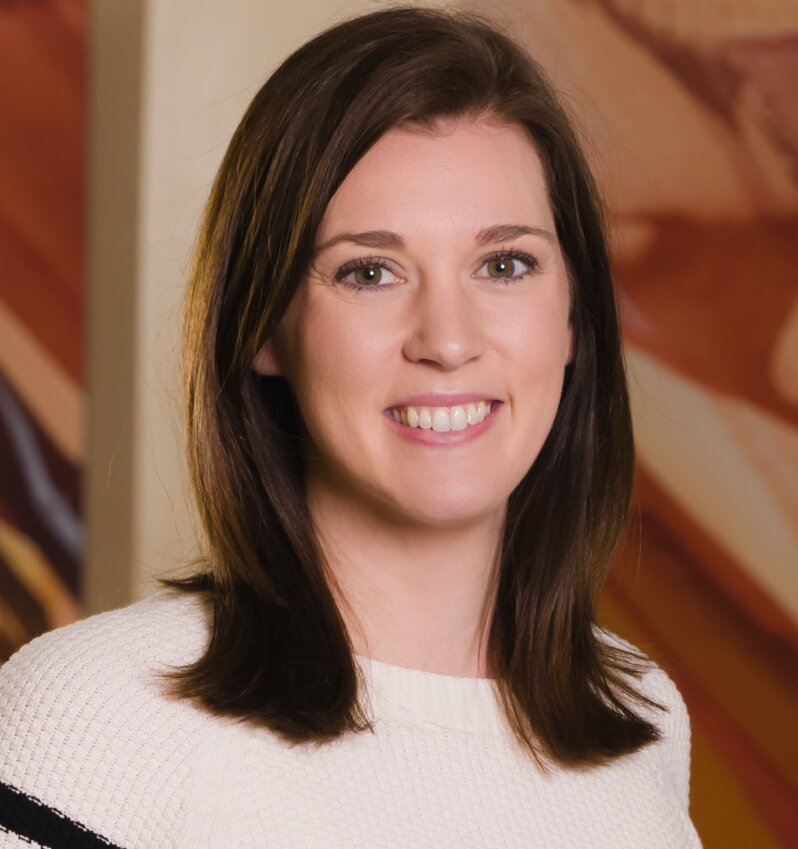
Allison Claycomb, 33
Director of Client Strategy and Fulfillment, Trib Connect/The Salt Lake Tribune, Salt Lake City, Utah
Education:
Bachelor of Science, Eastern Kentucky University
What advice do you have for other young professionals in news?
Get comfortable being uncomfortable. Always be willing to jump in and help, even if it is outside your regular daily duties. You may find yourself outside of your comfort zone, but that forces you to learn new skills and find what you are passionate about. What you can learn from the experience, your peers and the connections you can make is invaluable in your career. Be naturally curious. Be curious about new technology, metrics, products, your clients, etc. Being curious, innovative and possessing a client-first mindset allows you to go above and beyond expectations. It will set you apart from everyone else.
What is the best “coaching” advice you’ve ever received?
Never sacrifice what you want the most for what you want at the moment.

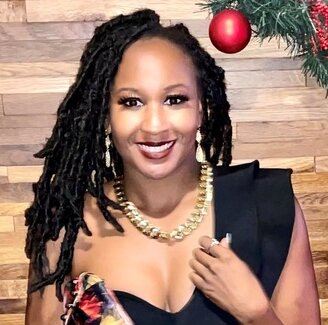
Marlissa Collier, 35
Creator and Host, The Green Route
Education: Bachelor of Science in Civil Engineering with a minor in English, California State University, Long Beach; and Master of Business Administration, Southern Methodist University’s Cox School of Business
What advice do you have for other young professionals in news?
I would challenge any young professional responsible for delivering news to do so responsibly. We live in a society where our attention spans make it so that we can only sit long enough for the headline. The news cycle and social media trends change so often that there is often a rush to get content out, even if it means delivering a half-baked story. But so much context can be missed when attempting to get it out that way. And a lack of context can perpetuate a lack of understanding. Don’t forget that the why and the how are often more important than the what. Take your time and craft a story that educates as well as entertains.
What is your strategy for creating compelling content?
The Green Route is a political commentary show designed to be a safe place for everyday, regular and busy people to learn about politics. I often run into people who want to talk about news but do not understand the conditions that allow a particular event to occur. The Green Route is a remedy to that. The show is structured in a way that informs on current events but also helps people understand the things on the periphery impacting the current event. My co-hosts and I combine politics and culture to make complex stories a little more digestible for everyone, and we do it over cocktails — so it’s that much cooler.

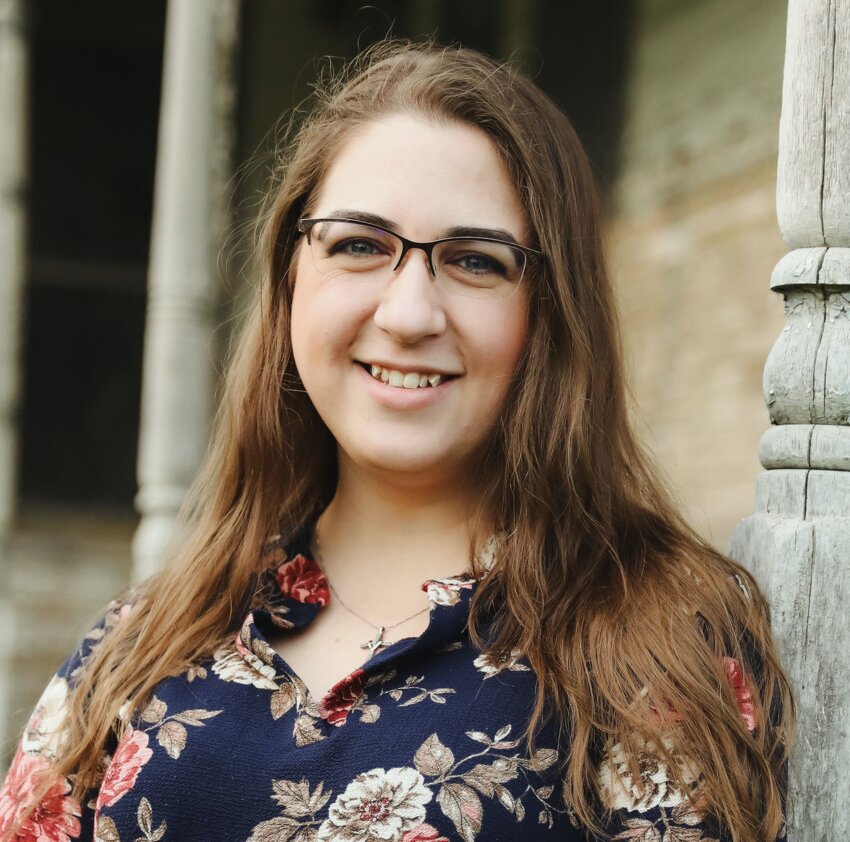
Amanda M. Dulitz, 34
Owner/Publisher, Day County Printing Company, Inc. dba Reporter & Farmer, Webster, South Dakota
Education: Homeschooled through high school; on-the-job training beginning in 2007
What advice do you have for other young professionals in news?
Always be honest and care about what you’re doing. Remove yourself from your reporting. Take your emotions out of it. That doesn’t mean you leave out all emotion, but don’t put yourself in the story. There’s a difference between having a writing style or voice and putting your opinions into the news. Every story has multiple sides, and it’s our job to find the middle ground, doing our best to report on both sides without an agenda.
Care about the story you’re writing. Understand that every word you put down has an impact. Care about your readers. Do the work for them. Your readers shouldn’t have to work; that goes for your writing style, grammar, prose and the depth of digging you put in for the piece. Sometimes, you have to spell it out, but never make them do their own math. Get to the details.
Find a mentor, someone you can grow a relationship with and who will care about your success or failures; this person needs to be someone who isn’t bothered by hurting your feelings. I developed a motto based on my mentor and former publisher, John Suhr: “Done is better than perfect.” As a perfectionist, it’s hard to implement that, but we must learn how to balance accuracy in our industry with timeliness.
How do you deal with making tough decisions as a leader?
I try my best to surround myself with the wisdom of the previous generation and others who are right in the thick of it.
I’ve also developed a network throughout my career with other newspaper people I can call and chat with to gain a different perspective. … I also don’t discount what my gut is telling me. I may ask a lot of advice, but I never go against my intuition. I feel that’s an intuition I’ve developed over years of asking the right people the right questions. Some decisions are clear about what needs to happen, but that doesn’t mean they’re still not tough ones to make.

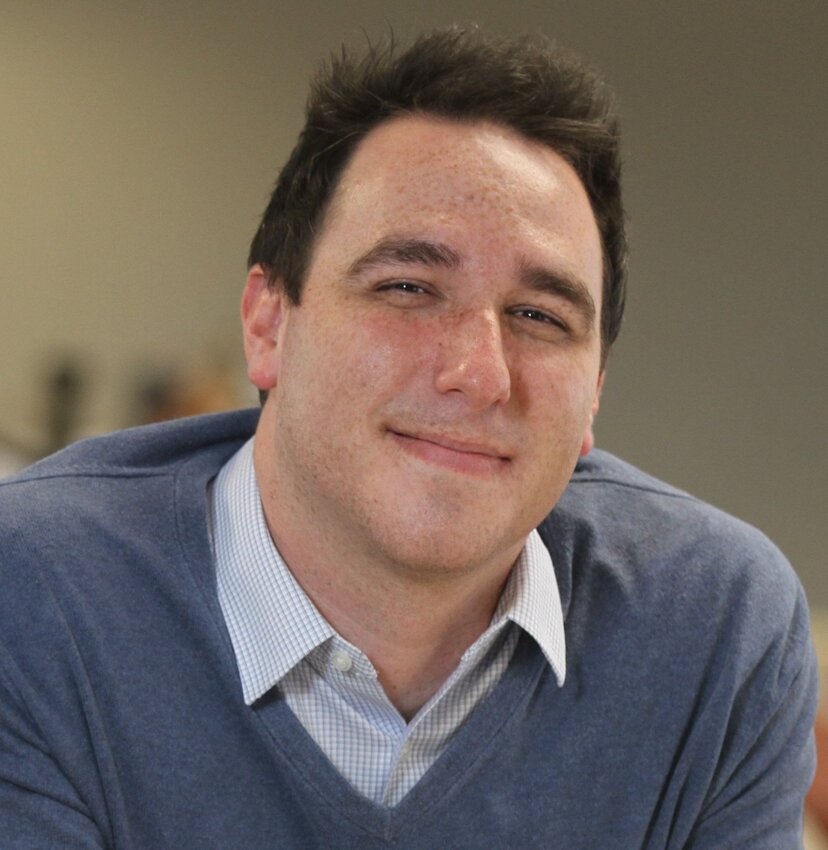
Max Filby, 33
Investigative/Enterprise Reporter, The Columbus Dispatch, Columbus, Ohio
Education: Bachelor of Science in Journalism, Bowling Green State University
What advice do you have for other young professionals in news?
Start small. I really value the time and experience I have gotten in smaller newsrooms. I learned a little bit of everything, making me a better reporter in the long run. Then, when you figure out what you want to do, whether it be investigative reporting, feature writing or something else, don’t hesitate. Just go for it, even if it means squeezing it between other assignments or weekend shifts.
What is the most compelling story you’ve covered? How did it impact your storytelling?
I recently put together a series of stories and a podcast on TikTok-famous plastic surgeon “Dr. Roxy,” who was accused by former patients of botching several surgeries. As the first podcast I’ve ever been on, it forced me to rethink how I tell narrative stories from a subject’s perspective in a way that makes listeners and readers want to keep going.

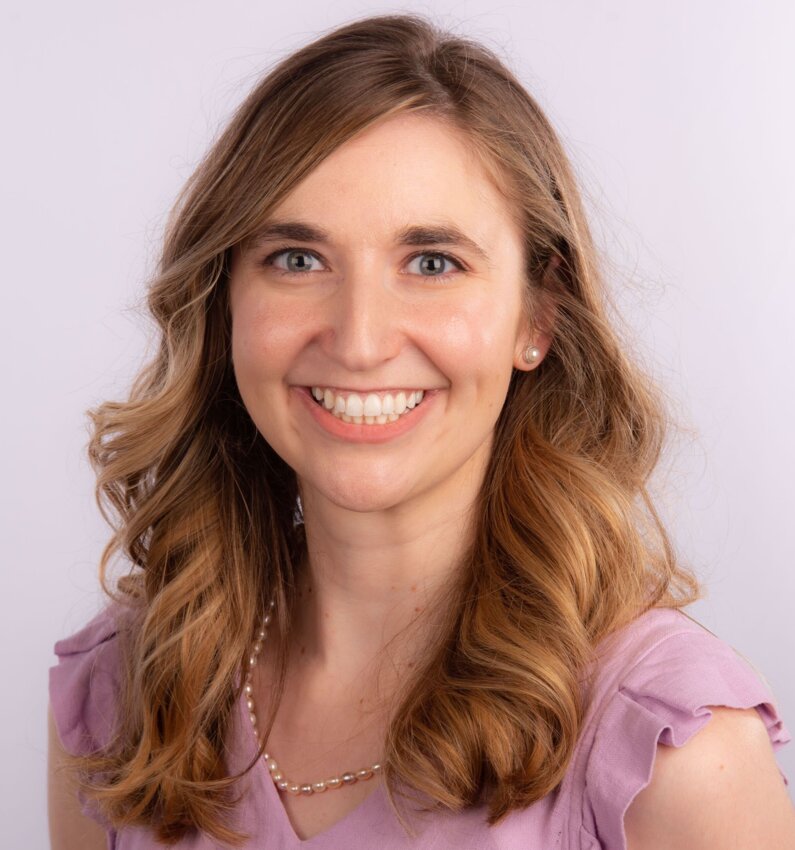
Andrea Gallo, 31
Investigative Reporter, The Times-Picayune (Nola.com) | The Advocate, The Acadiana Advocate, The Shreveport-Bossier City Advocate, Louisiana
Education: Bachelor of Arts in Mass Communication, Louisiana State University
What advice do you have for other young professionals in news?
Practice gratitude for the people willing to trust you with their stories. Surround yourself with supportive loved ones and friends. Investigative journalism can be demanding and challenging. Having a support system that keeps you grounded and picks you up when the work is grueling is essential.
What is the most useful reporting skill you have learned on the job?
I’ve learned never to assume that someone won’t talk to you. It’s always worth knocking on the door, making the phone call, sending the note. You never know who has been waiting for a chance to open up about the topic that’s stirring in your mind. Even if someone has previously turned down interview requests or had a bad relationship with the press, they may be a great source.

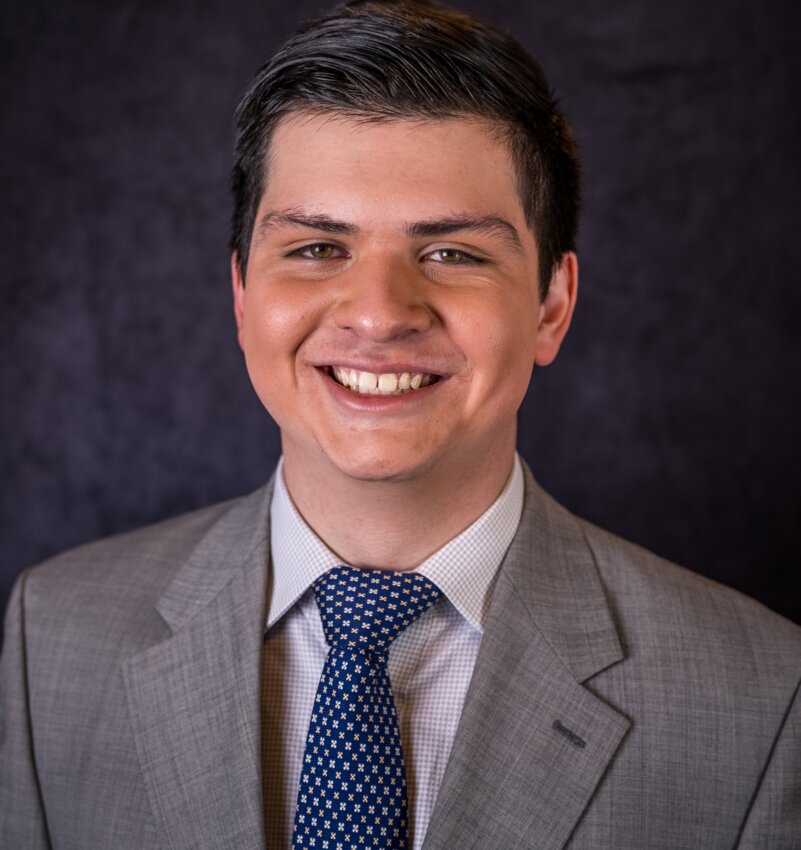
Michael Glenn, 16
Owner/Publisher, The Hutchinson Tribune, Hutchinson, Kansas
Education: Currently enrolled in Trinity Catholic Jr./Sr. High School, Hutchinson, Kansas (graduating with the Class of 2025)
What advice do you have for other young professionals in news?
Get out there, and just do it. Reporting and working in the news business can seem daunting, but anyone can do it with the right mindset. Even though it may be difficult, the best training for reporting is mentorship and experience.
What is your favorite thing about running a local community publication?
My favorite thing is being able to represent and serve my community. I enjoy seeing the publication’s work have an impact on Hutchinson and the surrounding areas. Every community deserves quality local news, and I am glad to be a part of it.

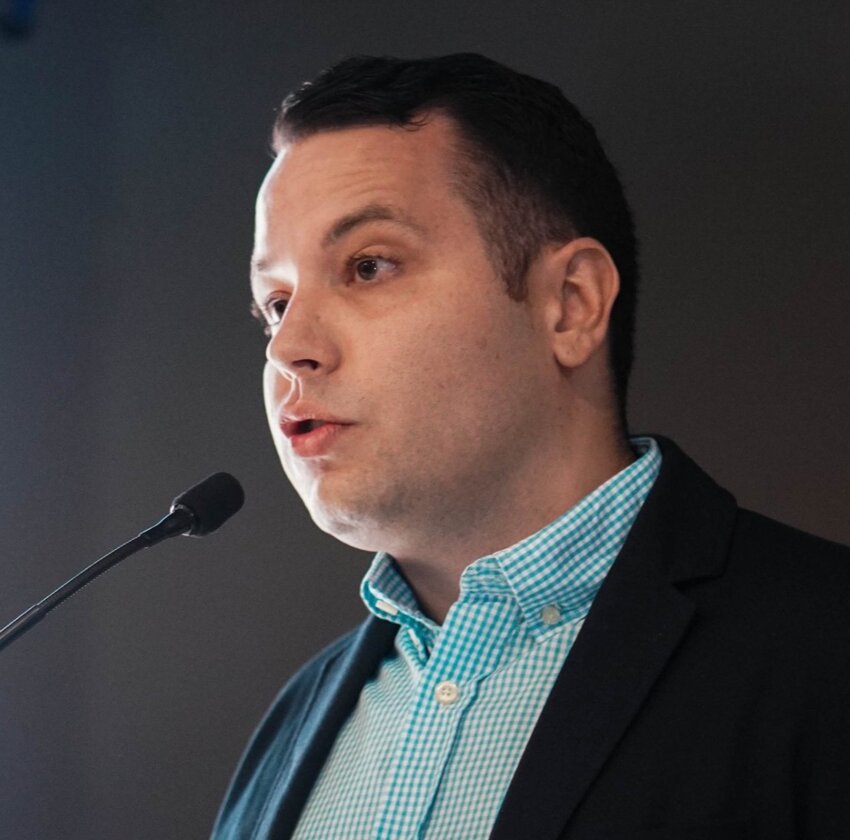
Denys Grellmann, 34
Publisher, 100fronteiras, Paraná, Brasil
Education: Social Communication, with a major in Journalism from Centro Universitário Dinâmica Das Cataratas-UDC, and Master in Journalism by ISE Business School/Universidad de Navarra, Executive MBA in Leadership and Territorial Development by UniAmérica and ICFJ Elevate Program by Babson Executive Education
What advice do you have for other young professionals in news?
Innovation and education are fundamental in journalism. I encourage young professionals to embrace technology and continually seek knowledge. Understanding the cultural and social dynamics of the communities we serve is vital. Integration and collaboration between different regions and cultures can significantly enrich our work.
What do you think is the crucial thing news publications can do to counter misinformation and increase trust in media?
Transparency, accountability and community engagement are essential. Publications should prioritize fact-checking and clarity in communicating their sources and methods. Additionally, engaging directly with communities and fostering open dialogue with the public can help build trust and mutual understanding.

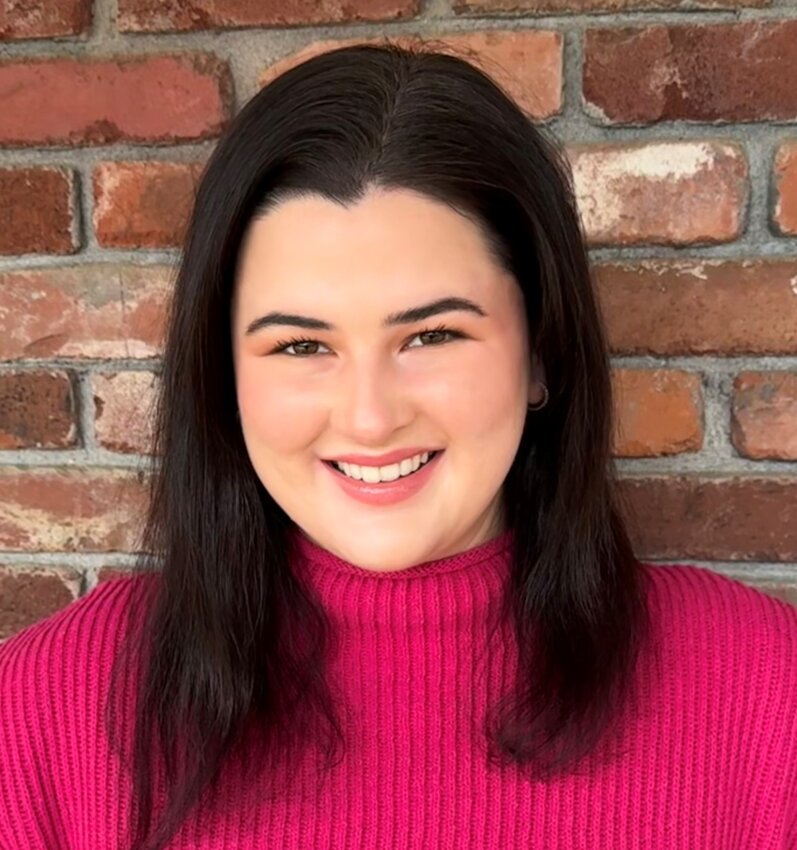
Hadley Hitson, 24
Children’s Health, Education and Welfare Reporter, Montgomery Advertiser (USA TODAY Network), Montgomery, Alabama
Education: Bachelor of Arts in Journalism with minors in Digital Media Studies and Spanish, University of Mississippi
What advice do you have for other young professionals in news?
My advice to young journalists is to focus on the people first. It’s all too easy to become desensitized to the terrible things that we see in the world regularly as journalists — whether that’s the impact of mass poverty across a region like Alabama’s Black Belt, unexplainable violence during a routine weekend breaking news shift or the results of an education system that simply leaves some children behind. None of these experiences are “normal” just because they are common. They are problems that should be fixed, and as journalists, we should do everything we can to ensure our coverage is productive.
Don’t let yourself reduce the people you meet to the potential stories they have to offer you. Come into every interaction with the basic understanding that we are both human beings. If nothing else, we have that in common.
How do you personally engage with your readers?
My first job at the paper was covering the rural South. No journalist at the Advertiser had been dedicated solely to covering access to healthcare, education, technology and other necessary services in Alabama’s Black Belt communities in years. That meant I had to build up the beat from scratch.
Because internet access and cell phone coverage can be unreliable in these rural areas, much of my initial reporting had to happen in person. I would connect with community leaders in a town I had never heard of and drive out to meet with them. I would then learn what’s important to them and what issues they want to resolve in the town. More often than not, that would become a fantastic article.
This method built numerous direct pipelines to our audience. They can tell me their thoughts on our coverage, and I can ask any questions about sourcing or how to approach a nuanced topic.
I try to be as available as possible to readers. I answer readers’ emails, stay engaged with community Facebook groups, and have answered way too many telemarketers, thinking the unknown number could be someone calling about the news.

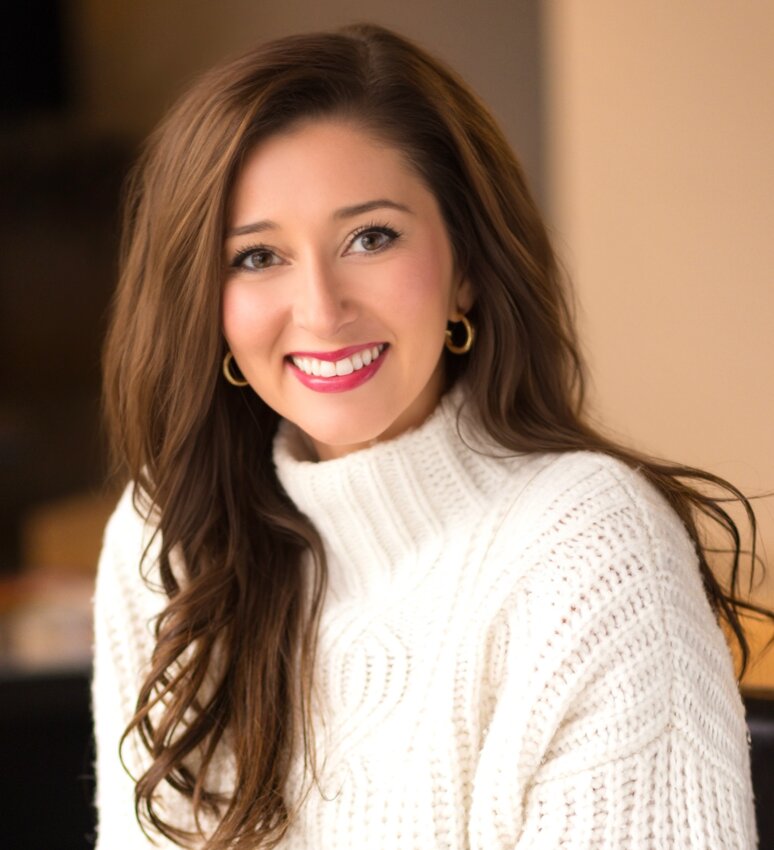
Laura Iwanski, 35
Director of Digital Agency Sales & Services, Hagadone Media Group, Coeur d'Alene, Idaho
Education: Bachelor of Science in Strategic Digital Communications and Psychology (dual degree), University of Kentucky
What advice do you have for other young professionals in news?
Expect and embrace the crazy! This industry is constantly changing, widely seen as the underdog and pushing against a steady stream of adversity. The battle may exhaust you if you don’t expect and embrace the chaos and challenges. It may be an internal issue, a budget cut, a lay-off, an infrastructural change, a cultural barrier. You name it, and you’ll likely see it. Turn those challenges into fuel and let them be the catalyst for the next evolution towards success. Lean into the tough times and let them teach you something!
Find an organization that is committed to its mission and leaders that are transparently willing to fight for the right thing on behalf of the organization and our clients/readers — even if it means putting their personal interests second. Lean into mentors who challenge you and invest in you as you invest in the organization.
How have you overcome obstacles in your career?
Looking back, I feel like I’ve tackled most challenges and obstacles by simply having the courage to think outside the box, speak up and bring my ideas to the table. I don’t wait to be asked to solve a problem, but rather, I see the problem and work towards viable solutions.
Remember, as a young professional, one of your most valuable assets in this industry is that you’re not beholden to the historical way of doing things. You learn, consume and buy in ways that our readers and clients do. Our industry is rapidly evolving, and we need fresh talent and ideas to help us adapt and be successful. Your ideas are no less valuable than anyone else’s.
I also think that a willingness to stretch my skill set and embrace change, even when it wasn’t something I planned, has helped me overcome a lot of obstacles. And it’s made me a better professional. We must build the place we want to work, and it's up to us to rebuild our industry.

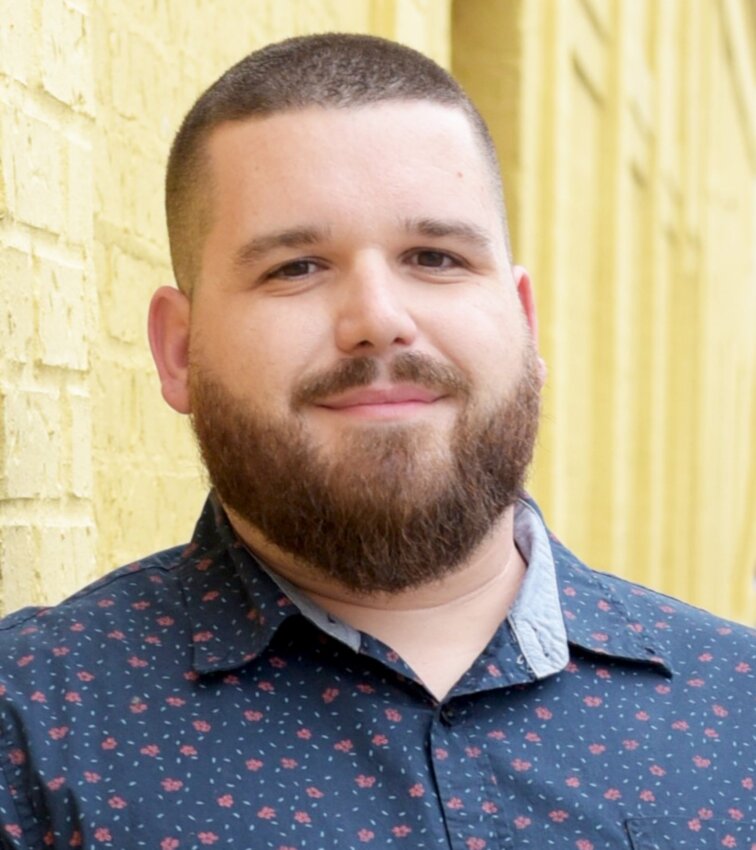
Matthew Louviere, 33
Managing Editor, The Daily Iberian (Wick Communications), New Iberia, Louisiana
Education: Bachelor of Arts in Philosophy, Louisiana State University
What advice do you have for other young professionals in news?
Don’t be scared to get out there and forge your own path.
Know where your publication has been, but don’t shy away from taking it in a new, possibly uncertain direction.
Often, we cling to tradition to shield ourselves from criticism or responsibility. Don’t be afraid to think outside of the box.
Be willing to challenge yourself as a journalist. Choose the assignments that you don’t necessarily feel a strong connection with. Make an effort to communicate with those in your community who offer different life experiences. We no longer have the luxury of being bystanders to events around us. Take an active role in shaping your community.
Finally, don’t be afraid to set boundaries for your mental and physical health. A strong work ethic is admirable, but don’t neglect your own needs. This profession is a marathon, not a sprint.
What is the key to connecting with your community?
Availability and honesty. Don’t wall yourself away from your readership. Try to be present and available, and the stories will follow.
Your readership knows more than you do about the goings on in your community. Use them to help grow your network, and you'll find that your engagement will increase.
When you struggle to find a story or feel unmotivated to write, your relationships with your community can carry you through. Some of the best stories come from small talk with those around you.
Be adventurous, try new things and always watch for a story to tell. Just because you don’t understand something now doesn’t mean you won't master it. Be honest with yourself and others about your limitations, and be willing to accept constructive criticism from those around you.

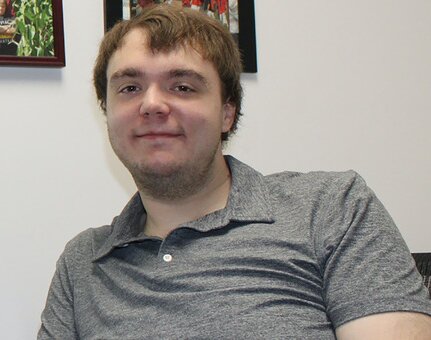
Eli Lutgens, 26
Publisher/Editor, Waseca County Pioneer, NRHEG Star Eagle, Southern MN Golden Link (EJL Publications, Pioneer Publications), New Richland, Minnesota
Education: College courses at Minnesota State University Marshall and South Central Technical College Mankato
What advice do you have for other young professionals in news?
The first lesson a young person must learn — both in journalism and life — is that everyone has something to offer. Every individual you meet will have information, experience or insight that exceeds yours in some way, so approach each exchange with humility and respect.
Your level of education or your place in life do not make you “better” than those around you; no one’s story is beneath you. Never underestimate the value of producing strong, meaningful work, even if it seems to be for a limited audience. A story that means the world to only one reader can have an immeasurable impact.
Show your regard by indicating genuine interest in the topic, preparing good questions and taking good notes. Never stop being curious. Pay attention to the niceties and the small details. Be kind.
What is the most critical thing that this industry must achieve to continue to be sustainable and relevant?
Thanks to the nearly universal use of interface exchanges, such as those on TikTok, YouTube and Facebook, I anticipate that more and more people will continue to collect and share the news on their own. If print media hopes to remain viable in this changing landscape, it must create a fluid connection with digital elements while retaining reader trust and loyalty. Creative, situation-specific systems must be devised to monetize web-based features.

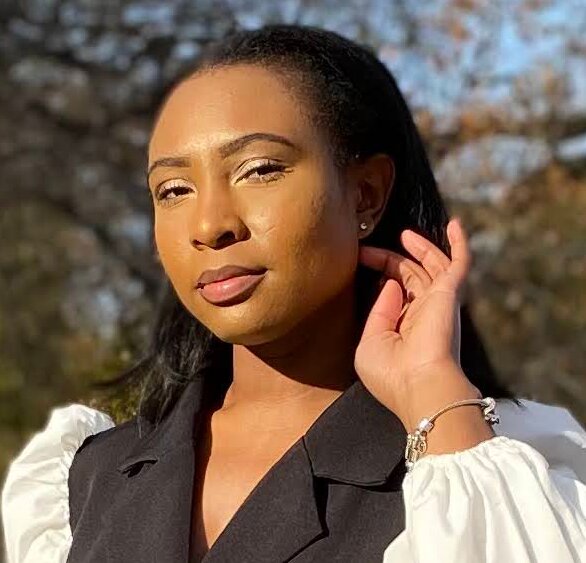
Kristantie May, 28
Managing Editor, NowKalamazoo, Kalamazoo, Michigan
Education: Bachelor of Science in Communication with minors in Marketing and Public Relations, University of Miami
What advice do you have for other young professionals in news?
Lead with empathy. Within my first five years as a producer and executive producer, I witnessed dozens of incredible journalists leave the work altogether because they were not cared for or weren’t treated as humans first. Especially if you’re a leader in the newsroom, but even if you’re not, lead with a deep understanding and awareness of the emotions, perspectives and needs of others. This will also make you an exceptional journalist. To quote my publisher, who is also one of my favorite writers, “There’s nothing more intrinsic to finding the heart of the story than letting empathy guide your way. Sometimes, that means searching for the humanity of the story — in yourself, in your subjects.”
With everything happening in the world, what keeps you optimistic about working in our industry?
As legacy news institutions and systems begin to crumble, leaders reflect on the errors that led them to this point. A crucial factor is the historical exclusion and negative depictions of Black and brown people, which has led to a loss of trust and support among these communities. While I mostly witness that we are still just in the acknowledgment phase of addressing the harm done by excluding Black stories and storytellers, there is optimism that we will progress toward implementing valuable lessons in reshaping our industry norms. Meanwhile, independent, hyperlocal news outlets founded and led by Black and brown journalists have come about thanks to advancements in the digital landscape. This newfound opportunity to establish our own narrative space brings me hope that no one's story will go untold or misrepresented.

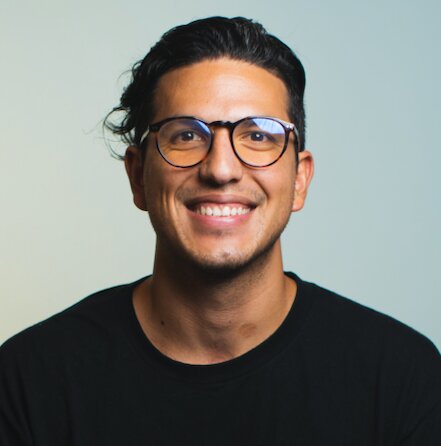
Gus Murillo, 31
Senior Director of Brand Marketing, Gannett, McLean, Virginia
Education: Bachelor of Science in Biological Sciences with a minor in Political Science, Louisiana State University
What advice do you have for other young professionals in news?
I’ve been in the news industry for three years but have been a marketer for over 12 years. There are a few principles that have helped me grow as a marketer and as a human.
Look at problems with a beginner’s mind. I practice a Zen Buddhist concept called shoshin that encourages people to address situations by letting go of their preconceived notions and ridding themselves of expectations. Our industry faces a constantly evolving landscape of challenges, and I look at each new challenge with a fresh perspective.
Ask for feedback relentlessly. I regularly ask those around me to “tell me something I don't want to hear.” I open myself to raw criticism because shying away from feedback will hurt my growth as a manager and a colleague.
Finally, impact the small world around you as much as possible. Most of us will be remembered for impacting those very close to us — our family, friends and colleagues. In 50 years, the world will not tell the story of “that project Gus worked on for a few months in 2024”. But in 50 years, my family and friends will hopefully retell stories of being there for them as a father, brother, son or friend.
How have you overcome obstacles in your career?
I can’t go around, outsmart or convince my way out of it; the only way is through the obstacle. I’ve been in recovery for almost three years. My journey through sobriety has been more challenging than any professional obstacle I have ever faced. A book that helped me in early sobriety is the modern stoic philosophy book, “The Obstacle is the Way,” by Ryan Holiday. Some big takeaways from stoic philosophy and 12-step have been: stay objective, seek serenity, control what you can control, stay even-keeled, and place my obstacles in perspective.
A rigorous internal practice of serenity and regularly seeking mental health assistance has helped me manage through the chaos of life as a father of four and a marketer in an evolving industry. Whether it’s my kids not cooperating when we are getting ready for school or our audience disliking an ad we put out, these principles have helped me manage life on life’s terms.

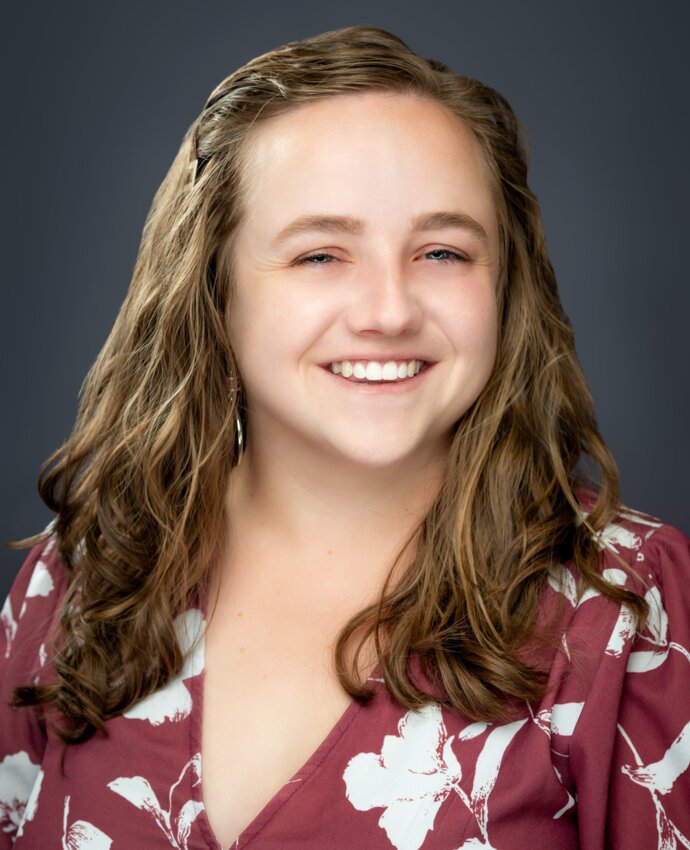
Daisy Nelson, 25
Editor-in-Chief, Mohave Valley Daily News, Needles Desert Star and The Laughlin Times (River City Newspapers), Bullhead City, Arizona
Education: Bachelor of Arts in Journalism, Arizona State University Walter Cronkite School of Journalism
What advice do you have for other young professionals in news?
The first thing that comes to mind regards the all-too-common struggle of striking a good work-life balance. As a mother and wife, I’m grateful to have a family that gives me some incentive to put my work down and try to set healthy boundaries, but I still have a long way to go until I feel like I can claim I have that balance.
In our industry, especially in local newsrooms, I think there is an increased trend of taking on more responsibilities than may actually fit within a title. With limited funding and resources, that’s something we’re tasked with navigating as we do our best to capitalize on what we can and work with what we’ve got. And if you’re like me, I throw myself entirely into my work. With our ever-so-vital roles, the push to produce quality, consistent, timely and impactful newspapers that serve our communities can easily be all-consuming. I see you, your passion and the heart you put into this work; those efforts do not go unnoticed.
My advice is as much me talking to myself as it is sharing with you: Delegate, set healthy boundaries for your own sake and the sake of your newsroom, and when you take some time away, spend it really away. As my wise associate editor says, “Forget about this place. It will still be here when you get back.”
What is your favorite thing about working for a local community publication?
There’s something about the local level of news that simply feels even more genuine and gritty. Instead of taking a 10,000-foot view of an issue at a state or national level, we’re right in the middle and able to hyperlocalize it. We can get down to the meat and potatoes of issues and see firsthand the effects our stories have on the community. We can tell the stories of our community, see the direct effects of our reporting, establish strong, lasting relationships with our neighbors and write the historical diary of our cities and towns. The things we report on matter deeply to us because they’re not just stories about some issue in some town somewhere. We’re reporting on issues that affect not only our readers but also ourselves.

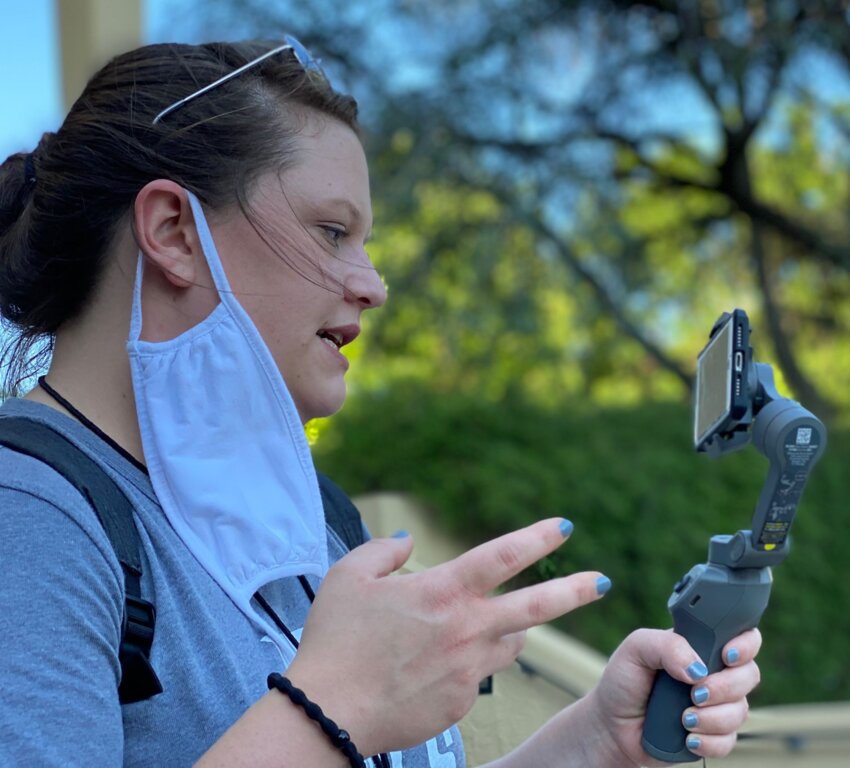
Ashley Remkus, 30
Local Investigative Editor, AL.com, Birmingham, Alabama
Education: Bachelor of Science in Mass Communication, University of North Alabama
What advice do you have for other young professionals in news?
Know and serve your audience — the people whose lives you can impact — rather than focusing on the loudest voices online. Be willing to adapt. Mediums ebb and flow, new tools emerge, audiences migrate and business models shift. But the foundation — solid reporting — remains.
With everything happening in the world today, what keeps you optimistic about working in our industry?
Impact. The news business allows us to change lives, influence laws and witness the impact of our work. It’s still possible to produce reporting that transcends politics, alleviates fear, charts solutions, gives voice to the public and holds the powerful to account. I’ve been fortunate to work with teams with the resources and support to produce this kind of work. As a journalist, there’s nothing more special than hearing people say our reporting helped them regain their lives and that they finally felt heard, seen and believed.

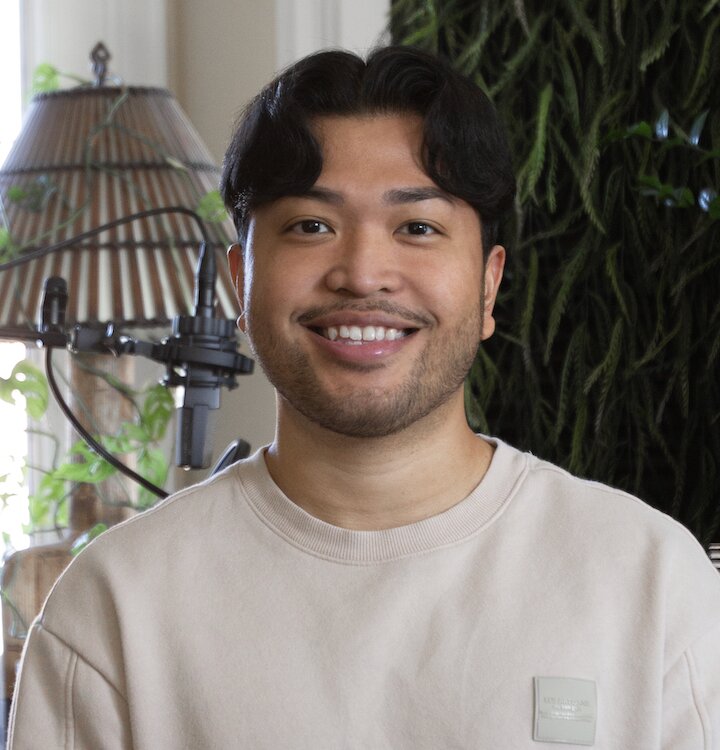
Kristoffer Ruaro, 29
Senior Marketing Manager/Local Engagement, Gannett, McLean, Virginia
Education: Bachelor of Business Administration in Marketing, University of Memphis, Tennessee
What advice do you have for other young professionals in news?
One of my favorite lessons from working in this industry is how important it is to own your unique perspective and let it guide you as you constantly navigate new waters. It’s not about having all the answers coming in or always being right, but more so having the tenacity and curiosity to push the envelope to see how much further you can go.
Another big lesson I’ve learned: Your failures are just as important as your successes. There’s equal value in the insight you gain from your wins and flops. Through aggregating your learnings, you grow your ability to trust your instincts and overall become better suited to handle new and even tougher challenges that come your way.
What do you think the news media landscape will look like in 10 years? What do you hope to be doing at that time?
I think 10 years from now, it’s safe to say that there will be more news mediums. I expect the industry will evolve to meet the ability to take space and report through new platforms, similar to what we saw during the rise of the digital age. It’s been interesting to see how, in the past few years, journalists have found ways to tailor and expand on how they tell stories through new platforms that come up. I’m excited to see how things keep evolving in the future. But with all the inevitable changes in technology, I believe that one thing that will remain constant will be the need for reporting to be community-centric. I think that focusing on the integrity of local news reporting will always be the forefront of what keeps the news media industry strong. It will just be our job to evolve with the times and adapt to the ways readers prefer to consume content.
Ten years from now, I’d love to play a bigger part in my community by carving out spaces for different types of people to come together and be creative. That’s one of the things I’m most grateful for at Gannett. From my managers to my mentors and everyone I work with, they’ve always given me a safe space to be myself and reassured me that my perspective is valued, no matter how different or crazy the ideas I bring to the table sometimes. And to that, I owe a lot of my growth and success. So, at some point, I would love to have a hand in creating that kind of space for other people.

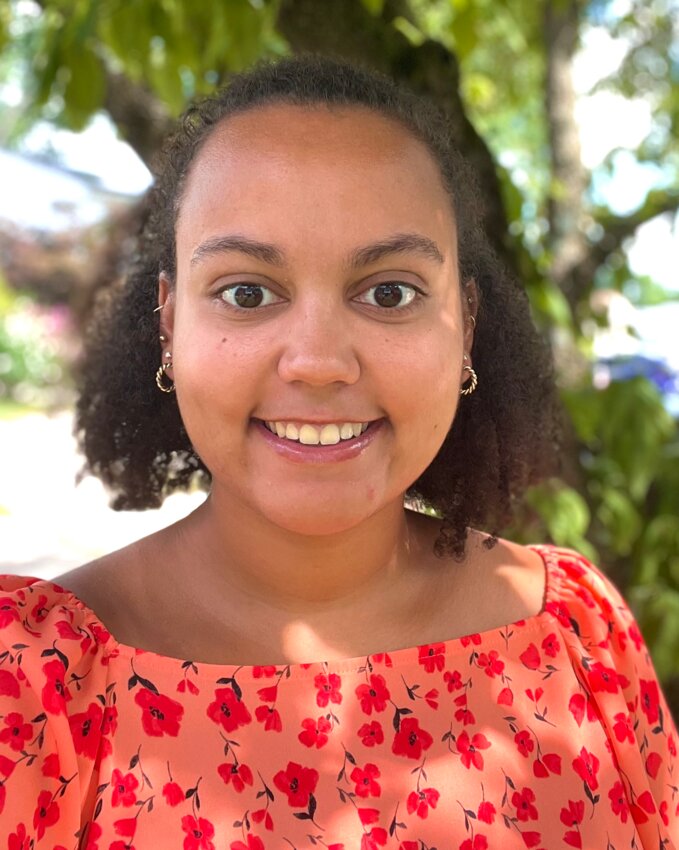
Megan Sayles, 24
Business Writer, AFRO News, Baltimore, Maryland
Education: Bachelor of Arts in Multiplatform Journalism and Government and Politics, University of Maryland
What advice do you have for other young professionals in news?
My biggest advice for other young professionals in the news industry is to lead with compassion. As journalists, it’s easy to become overwhelmed with deadlines and consumed by the demands of the 24-hour news cycle. I think the pressure can lead us to become single-minded, focusing more on getting the comments we need from sources in order to push out the story as fast as possible while forsaking the empathy and attention our sources deserve.
We may view them as “sources,” but they are people. They are the reason we have a job in the first place. They are at the center of the stories we tell. Even as deadlines loom over us, we must take the time to connect with our sources and act with sensitivity.
We cannot become numb in an industry where we encounter tragedies, injustices and hardships daily. We must maintain our compassion, and in line with that, we must prioritize our mental health.
What is your strategy for creating compelling content that engages your audience?
While there is no foolproof strategy for creating compelling content that engages audiences, my approach rests in prioritizing diverse perspectives. Too often, news organizations rely on the same sources for input — another circumstance escalated by the 24-hour news cycle. Although it may take more time and effort, including a range of voices in your stories is critical.
Having diverse perspectives helps to ensure any reader can relate to the story. It also allows you, as the journalist, to better convey the nuances and context surrounding the subject matter. Content must be inclusive, not exclusive, if we want the public to stay engaged and informed.

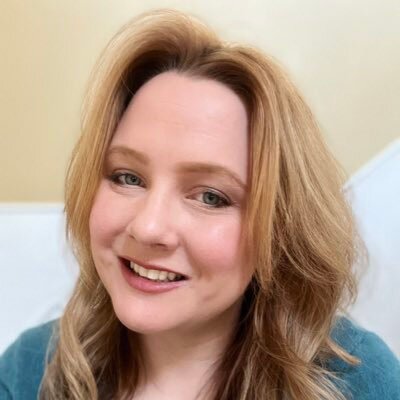
Christen Smith, 34
Regional Editor, The Center Square, Chicago
Education: Bachelor of Arts in Communications, Pennsylvania State University
What advice do you have for other young professionals in news?
Never give up. I’ve tried to break into editing for the better half of my career. A combination of authenticity, networking and consistency helped me achieve that goal.
Also, don’t avoid covering complex issues you’ve never encountered before. I’ve done it all: taxes, the power grid, gun sales research — the list goes on. Each of these experiences primed me to lead a state government news team in Pennsylvania. Every obscure beat I faced head-on gives me distinct insight into the policy driving public political discourse.
How have you overcome obstacles in your career?
I’ve prioritized opportunities that enhance my skills, even if it was for publications that operate in relative obscurity. Doing so allowed me to work remotely years before the pandemic made it standard and gave me control over my work-life balance.
It wasn’t easy. I squeezed a lot of work into nap times, and it wasn’t unusual to find me typing away at my laptop in the early morning hours.
Balance and sacrifice will look different for everyone. Journalism doesn’t offer a traditional 9-to-5 work schedule, so use it to your advantage and craft the life you want most.

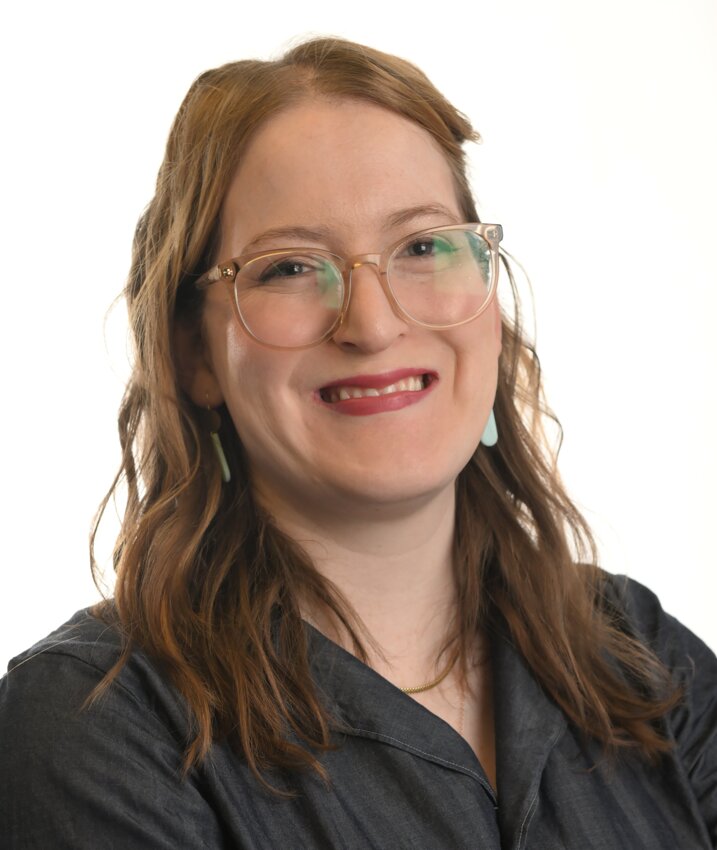
Ruth Serven Smith, 29
Education Lab Editor, AL.com, Birmingham, Alabama
Education: Bachelor of Journalism, University of Missouri School of Journalism
What advice do you have for other young professionals in news?
Journalism is a tough industry to break into and stay in. I have two pieces of advice for young professionals: Don’t be discouraged if it takes a few jobs or a few years to do the work you really want to do. And don’t be discouraged if you need to take a break and do other work for a little while. At the end of the day, journalism is storytelling. It’s a valuable skill set to have and one that you can always hone and shape as the industry evolves.
What do you think is the crucial thing news publications can do to counter misinformation and increase trust in media?
Journalists, as individual professionals, have to be accurate. We must only publish what we know to be true. We must always seek language that is precise and accurate. And while I think it’s important to be aware of misinformation on a broad, national scale, in reality, most journalists need to spend less time looking at Trump’s tweets and more time addressing misinformation locally. Did that city councilman really say that? Who is on the ballot this year? What does this term mean? Who is reporting on this issue on the ground? Building trust with individuals and local audiences goes a long way.

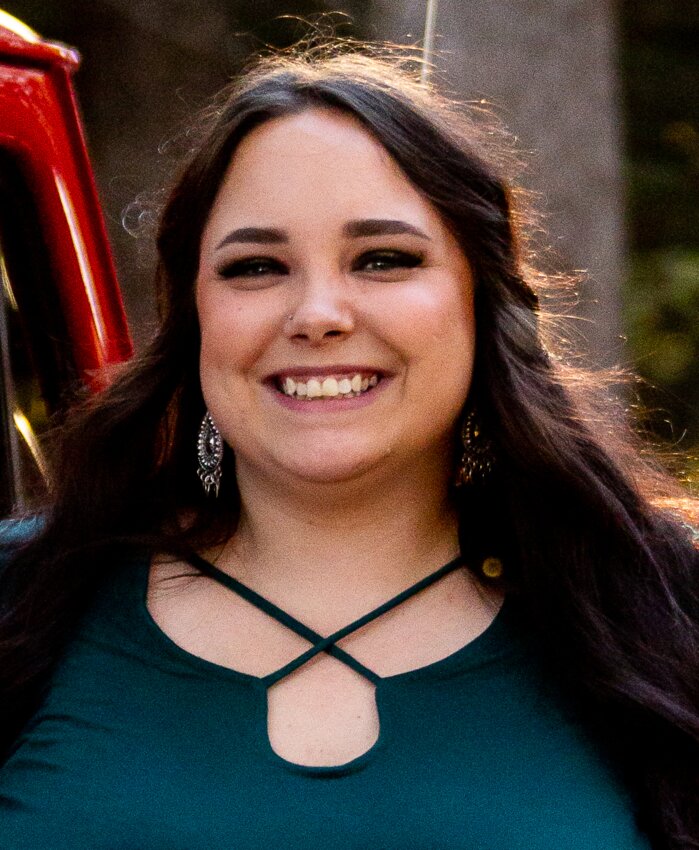
Sapphire Jade Smith, 27
Business and Design Manager, Cimarron Valley Communications, LLC, Cushing, Oklahoma
Education: High school diploma; Graduate of Central Technology in Graphic Design
What advice do you have for other young professionals in news?
Don’t underestimate yourself. You can do anything you put your mind to. I am a single mother of two, with no college degree. I graduated high school with a baby on my hip and took a year of graphic design at our local trade school. I’ve been in the industry for over six years, and I’ve become a big part of the company I work for. If you are willing to do the hard work, you will be unstoppable.
What is the best “coaching” advice you’ve ever received?
Work hard; play harder. Life is not all work. You need to treat yourself regularly. You need to balance work and fun. You may be busy with work, but that shouldn’t be an excuse not to have fun. Work hard at your job, and do your job well. Hard work always pays off. But when you have that time off, do things that make the little kid inside of you happy. Taking the time for fun on the weekend makes Monday a little less dreadful and Friday a lot more exciting.


Sunny Sone, 28
Newsletter Editor, The Trace, New York City
Education: Bachelor of Journalism, University of Texas at Austin
What advice do you have for other young professionals in news?
Create community, not competitors. Your peers within and outside your newsroom are your best allies in an increasingly challenging field. They have the knowledge you might not yet have, whether about product development, writing and editing or navigating a new workplace. Stay current on what people you admire are working on, and connect with those people if you can. Chase opportunities to learn new things. Look after your mental health, and create boundaries around the amount of time you’ll give to the job.
Read lots about your craft, but consume other media, too. Go to the movies and watch YouTube video essays and television. Listen to music and podcasts. Take a walk and find some street art to stare at.
Last but not least, know your values and ethical frameworks, and don’t be afraid to fight for them. Media makers have an enormous influence on people’s perceptions of reality and are responsible for holding themselves accountable for carelessness and taking action to avoid institutionalized recklessness in the future. You can and should be a part of that change.
To what current digital trends should our industry pay close attention?
AI is a technology with great potential for good and bad, particularly for journalism and other creative fields.
Everyone should be watching power shifting among the tech players that have come to define how publishers distribute their work over the past decade and how those changes further stratify readers. There have been some interesting developments around newsletters and email service providers over the past few years, and I expect that to continue this year. Social media companies — except, maybe, Reddit and TikTok — are having an identity crisis. The ethics of posting and using some platforms (you know which) have also become much more complex. Honestly, it’s chaos out there, which means publishers should keep an eye on things.
Google Search is another one. This is a company that remade the internet. It’s also a company that constantly tweaks its search algorithm, spends mind-boggling amounts of money to stay at the top and operates, for the most part, in a black box. But Google has already lost one high-profile antitrust case in the past couple of months and faces more legal challenges in 2024. My general sense is that users are also unhappy with how Google has been changing its search function. It’ll be interesting to see if any change manifests from Google’s struggles and what alternatives emerge.
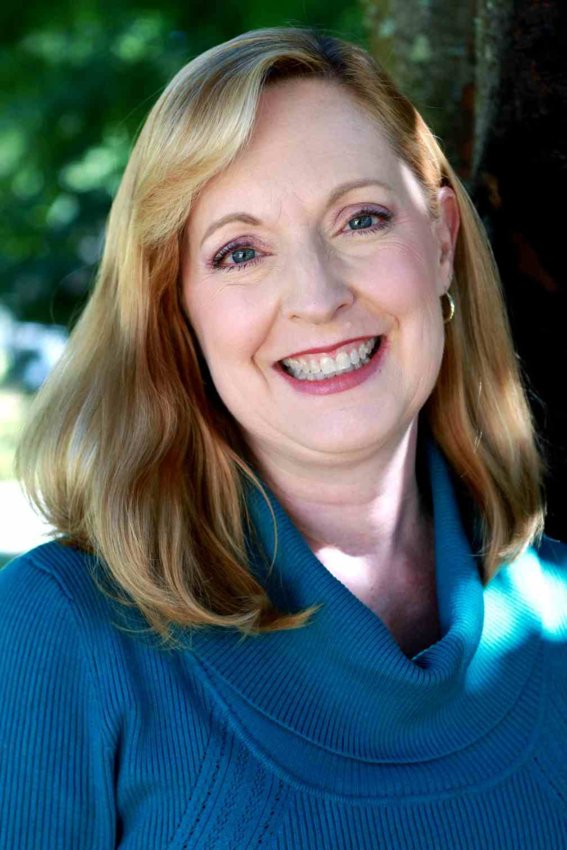 Robin Blinder is E&P's editor-in-chief. She has been with E&P for three years. She can be reached at robin@editorandpublisher.com.
Robin Blinder is E&P's editor-in-chief. She has been with E&P for three years. She can be reached at robin@editorandpublisher.com.
Comments
No comments on this item Please log in to comment by clicking here